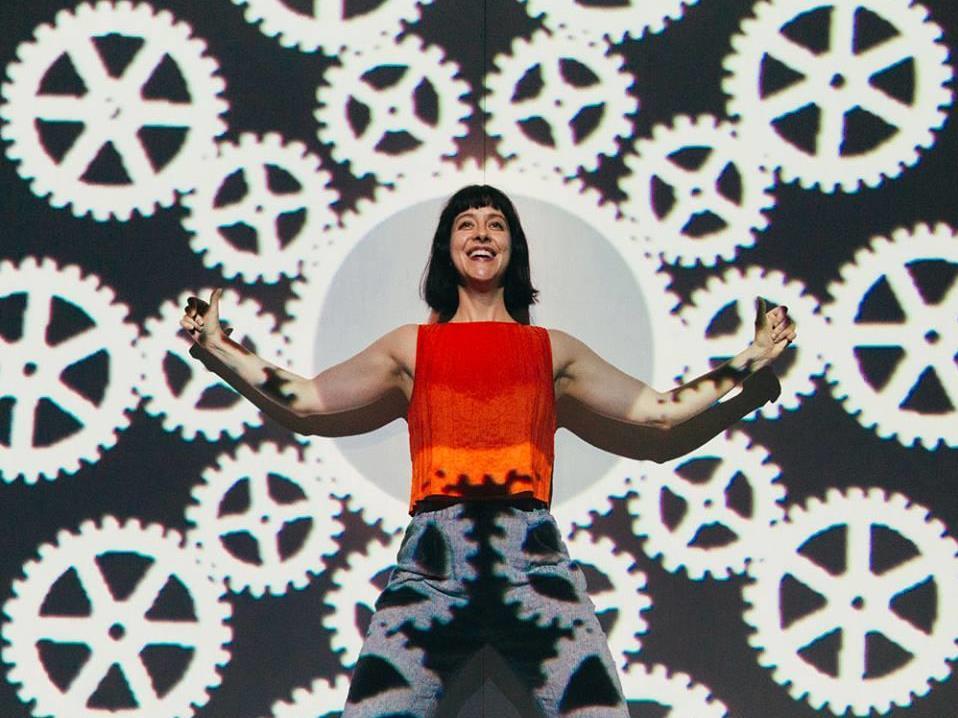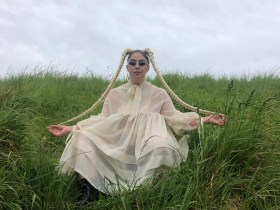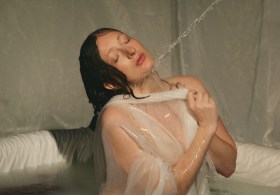If you work in the performing arts, you are bombarded with any number of articles on self-care. ‘50 ways to take care of yourself in the arts,’ reads one; ‘Why we are burning out in the arts’ reads another from the same publication. Studies are commissioned into mental health, statistics bandied about, and some performing arts centers have gone as far as running ‘Self Care Forums for Artists’.
The articles and workshops are fantastic resources for struggling artists. However, with all the emphasis on self-care, you would be forgiven for thinking that artists themselves are the problem, as opposed to the culture within which they work.
In 2015, the New York Times published an article on sexual harassment and bullying in the theatre. ‘Sex and Violence Beyond the Script’ explored the ‘confusion over blurry boundaries’ that is prevalent in the theatre industry. Earlier this year, The Chicago Tribune published an article on sexual harassment in the improvisational comedy scene, and The Reader (another Chicago publication) published an article about the exploitation and abuse that’s rife in non-equity theatre productions.
In Australia, artists are supposedly burning out, whereas in America they’re facing workplace harassment and bullying.
Why has Australia’s theatre culture gone unexamined and unchallenged? As a working artist, I have not been surprised at the lack of local stories about exploitation in the theatre. Not because my 12 years of mostly non-Equity work have been exploitation free, but because nearly every single artist I have spoken to in compiling this story has articulated the same thought: nobody wants to be the first one to complain. It is a small industry. Everybody knows everyone else. And the squeaky wheel doesn’t get the part.
Madness in the method
Cara Phillips started working as a professional actor prior to graduating from the Curtin University of Technology Performing Arts course in 2001. ‘I started out with a Blue Room show as an actor,’ she said, adding that this was because the show’s director was from her university. ‘Then I got this Barking Gecko show. I was surprised by that. I didn’t expect it.’
Phillips went on to work in film and theatre, on and off, for nearly 20 years. At one stage she directed eight shows in one year, as well as performing in and producing other projects.
‘I grew up feeling like success is the most important thing,’ she said. ‘And because I did achieve success at one point I thought it was easy.’
In 2002, Phillip’s health began to decline and she had to pull back from her theatre commitments. She attributes it mostly to overwork, and a fear of turning down opportunities, but also to the theatrical process itself: ‘Straight out of uni, there was a real leaning towards the more emotionally full on. The more “Method” the better.’
Phillips said one actor she worked with became so ‘Method’ they nearly pushed her off stage. ‘I was so thrown; it wasn’t even good for the performance!’
Sixteen years later and not much has changed. 20-year-old Tristan McInnes is a third-year Curtin University performance student and a regular performer at Perth’s local independent theatre hub, The Blue Room. He thinks there are directors working in the industry who ‘are not quite aware of what Method acting does, when you are asking someone to draw on emotional trauma,’ and believes that Strassburg’s infamous ‘Method’ can do more to hinder a theatrical process than help it.
‘Everyone has been in some sort of physical threat. Actors get too intense, using some sort of method or theory to justify violence or passion that’s really only applicable to them,’ he said.
From interconnection to transgression
WAAPA acting graduate Siobhan Dow-Hall tutors at Curtin, and is doing her Master’s Thesis on rape culture. She recently starred in a production at PICA that interrogates victim-blaming.
‘We were in the rehearsal room discussing football and how they treat women, how bad things were,’ she said. ‘I kept thinking [that] theatre is just as bad. There are so many blurred boundaries. There are not many jobs where you touch each other so much. You meet people all the time, socialise, become incredibly close. The social contracts are more fluid.’
Phillips queried whether the familiarity of performers with each other as friends and collaborators can lead to transgressions. ‘I was in a show with an older man I like and respect. We had a degree of closeness. He kept trying to grab my boobs. He found it funny. In an office that would be mental. In a rehearsal room everyone just laughs.’
Phillips wasn’t laughing, but she didn’t know how to speak up. She went along with the rehearsal like nothing had happened. ‘There’s a lot of expectation you have to be happy to do anything,’ she said. ‘But you can’t just expect everyone to be comfortable physically. There have to be boundaries.’
Clare Jones* is a writer and performer who began work in film but prefers performing in front of a live audience. ‘I remember being in a rehearsal where the director wanted us all to share the worst days of our lives,’ she said. ‘These were people I’d just started working with. It made me really uncomfortable. I ended up making something up.’ The director in question proceeded to ask the performers to draw on this exercise during scene work, so the performance would be ‘more authentic’.
When Jones called the director to discuss the problems associated with this kind of memory recall, ‘he accused me of being uncommitted to the play.’
Jones said she has faced it all in her 13 years in the industry. ‘I’ve had actors kiss me without permission or warning during a rehearsal; that’s a big one.’ And her negative experiences haven’t been limited to the rehearsal room. ‘I once had a fellow actor throw out the fight choreography and fight his scene mate for real, because he wanted it to be “raw”.’
Jones was concerned not only because the situation was dangerous for the actors involved, but because she felt personally at risk. ‘I was on stage during the fight,’ she explains.
She has also had some pretty terrible audition experiences. ‘Everything from the old ‘casting couch’ lines, to subtle digs about my body, my heritage and my sexuality.’
Sometimes the bad behaviour is far from subtle. ‘I once had a director ring me up and ask me to ‘improvise’ over the phone to try and secure a role; he said he needed to see how I thought on my feet.’ Naively I agreed. It took me a while into the “scene” to realise he was masturbating on the other end of the line and there was no role. He did that to a lot of actors.’
Dow-Hall has also experienced uncomfortable sexual comments about her body. She firmly believes that being liberal and in the arts doesn’t mean that ‘normal socio-sexual rules’ go out the window.
‘One thing I always say to my student actors is [that] you are not walking props. If there is a sex scene, or violence, you have a right to feel comfortable.’
A comfortable process is going to result in a higher quality of work, she believes. ‘If you shock me and make me uncomfortable to elicit a reaction, that’s not me working. That’s not professional. You might as well pull a random off the street and make them cry. You hired me as an actor. Trust me do to my job. To get there in my own time, through a professional process.’
Speaking out isn’t easy
Speaking up when boundaries are crossed is not always that simple. Kingsley Judd has been working in Perth’s independent and professional performing arts scene since graduating from Curtin in 1993. ‘I think it’s difficult as an independent artist.’ he said.
‘There is no framework if you have an issue to discuss it in a formal way. You need to be able to get on with as many people as possible–if you want to keep working.’
Judd is full of stories about long days driving to perform in rural and regional schools, late night rehearsals, even having to share unwashed costumes. He has also experienced directors treating him very different to his female counterparts. ‘I worked with one director, who would grab the female actors by the arm and drag them across the room. He’d get quite impatient, quite quickly.’ When the same director spoke to Judd, he would ask him politely to move and stand in a different place.
‘I’d like to think I’d recognise it more now and actually address it,’ he said. ‘I guess you don’t know until you’re in that situation.’
The problems aren’t limited to independent theatre or long touring processes. Prolific Perth actor Nick Maclaine has felt ‘burnt out’ during fully funded equity projects. ‘9-5 working days are not always conducive to creativity,’ he said. ‘Sometimes it’s more valuable to have time away from the rehearsal room to reflect and assimilate what you’ve done.’
Performer and theatre director Sarah McKellar has strong opinions around creating safe spaces in theatre. ‘When it comes to physical safety, I fiercely protect my rights and can get quite cranky if I’m asked to do things where I’m put at risk.’
McKellar believes a cavalier approach to monitoring physical and emotional well-being in the rehearsal room is far too common. ‘We don’t make it easy to talk about. I think it’s often tied up in what we consider “professional” – we worry about getting a “diva” reputation and not getting hired again. But putting ourselves at risk puts others at risk.’
McKellar cites an example from a regional tour. One of the team members was suffering from insomnia and neglected to share that with the others. ‘She thought it was “unprofessional” and she should just deal with it and follow through with all her responsibilities as she saw them. This was a major problem because one of her responsibilities was driving the van!’
Building a safer culture
The myriad articles on the internet dedicated to artist self-care advocate everything from building boundaries, learning to say no, asking for money, meditation, and drinking eight glasses of water a day. And while this is wonderful advice for life, when applied to safe work place practice it is reminiscent of ‘The Rules’ of how not to get raped. In what other industry would the response to consistent work place bullying and sexual harassment be: meditate more, and make sure you’re getting plenty of sleep?
Pointing the finger at the ‘abusers’ and taking all responsibility for creating safe spaces away from the artists may not be the answer. Nonetheless, if this is indeed a cultural problem, there needs to be a collaborative approach to instigating cultural change.
Beyond Blue’s report on Workplace Bullying found that the most common response to incidences of sexual harassment, physical, emotional, or psychological abuse was to focus on individuals. The study concluded this was ultimately ineffectual and unhelpful. The 2014 review conducted with the University of Wollongong and the Centre for Health Initiatives found that cultural and organisational factors needed to be addressed, with clear policies put in place for dealing with conflict and adequate training in order for ‘front-line managers and supervisors to prevent and deal with instances of work-place bullying.’
Arts training focuses on the creation of the work. At most, communication problems are addressed only in as much as they interfere with the quality or effectiveness of the creative process. Rafe Beckley’s ground breaking Open Book Theatre Management, a book dedicated to ‘ethical theatre production’, places the focus almost solely on managing finances and contractual obligations – and of course, being underworked and overpaid is a huge part of the problem.
A 2015 study on Working in the Australian Entertainment Industry (commissioned by Entertainment Assist and the Victoria University) drew strong links between long work hours and low wages leading to higher than average incidence of mental health disorders in the arts. The study did not explore whether unsafe working conditions, incidence of sexual harassment or work place bullying were a factor.
Communication is key
Cara Phillips was my first director. She was a hard act to follow, and cemented in my expectations almost impossibly high standards of how a rehearsal room should be run. When I asked her about her directorial process she told me about a four-year verbatim style project she had taken part in as a performer/devisor with Perth International Arts Festival, directed by Sophia Hall.
‘It was a consciously safe environment from the beginning,’ she said, explaining that the project involved interviewing refugees about their traumatic stories. The actors all began by undergoing formal training in trauma counselling with the Association for Services to Torture and Trauma Survivors.
‘Sophia was also a big advocate of co-active listening. Every rehearsal we would start in pairs, and take turns talking about the process and what was going on for us and our lives. There was a space at the start and end of every day, where we just listened to each other with no input.’
Everyone I spoke to discussed the importance of clear communication in a successful creative process. Phillips acknowledged that establishing expectations and a system for dealing with conflict resolution at the outset is incredibly important. However, she said not to underestimate the value of ‘checking in’ at the start of the day, and ‘checking out’ at the end of the rehearsal.
‘Working in the arts can bring up emotions and things from your own life. I have always wanted people to be able to speak up if something is bothering them. Without being judged, or being afraid they won’t work again. I believe that people in general operate their best when they feel safe and valued,’ Phillips said.
McInnes agreed, saying it was important ‘for the director to let you know they are on your team. If you feel supported, you are going to give a better performance.’
When asked how his ideal process would begin, he said with a coffee and discussion of expectations around the process. ‘For the director to say this is what I want, and the actor to say this is how I can give that to you.’
Phillips stressed the importance of letting the actors discuss their expectations, physical boundaries and requirements for feeling safe. ‘If the director sets out their expectations first, and [then] asks people if they agree, they might not be honest because they don’t want to be a pain in the arse, or [because] they feel insecure about their own opinion.’ She tries to ask her performers what they think first. ‘Then you can work with that. You do have to set some boundaries. Obviously some people may have expectations that contradict someone else’s right to feel safe.’
McInnes put it incredibly succinctly: ‘It’s about establishing clear terms, clauses and even strategies for what to do when things aren’t working. That for me isn’t confrontation, it’s communication. But when it’s not established from the get go it [becomes] confrontation. If there is a process for discussing difficulties they can be overcome, but without the process things become a “problem”, and problems have to be confronted.’
As another actor said: ‘In an ideal world Perth would have 10 major theatre companies, funding to arts would double, theatre spaces would be much more affordable, the public would express their appreciation of artists more, and theatre artists would recognise their need to support and encourage each other. Obstacles and challenges get in the way of that perfect world.’
Perhaps that perfect world is out of reach. But let’s not start with trying to change the world. Let’s start with the rehearsal room.
*Surname changed at her request.






